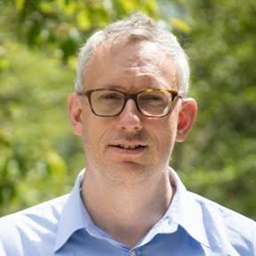Wednesday 18 and Thursday 19 June 2025
This conference welcomes stories about the positive impact of academic advising* and meeting its associated challenges. We are interested in hearing from practitioners who have created a mutual interest in the discipline nurturing a will to learn (Lawrence et al., 2020) and leaders who have reconciled dissonant discourses of advising through whole institution approaches.
The importance of building and maintaining relationships in education has historical roots, from socratic dialogue to critical theorists’ understanding of teaching and learning (for example, Freire, 1970; hooks, 2003; Noddings, 2004). More recently a ‘relational pedagogy’ (Bovill, 2020), which ‘puts relationships at the heart of teaching and emphasises meaningful connection needs to be established between teacher and students if effective teaching is to take place’ (p. 3) has been called for. It has arguably never been more important in an HE climate characterised by larger numbers of students presenting with diverse learning needs and where university mission statements commonly promise ‘personalised learning’ to their students.
As the key site for this to be realised, the importance of academic advising is clear. Moreover, research underlines its significance by indicating the ‘human side’ of education comes first and that proactive holistic support is the way to achieve the ‘belonging’ at the heart of student retention and success (Thomas et al., 2017) and to combat persistent differences in student outcomes for ‘at risk’ student groups (Mountford-Zimdars et al., 2015; OfS, 2019a, b; Universities UK/NUS, 2019).
Despite this, academic advising can be undefined and lack consistency (for example, McFarlane, 2016; Walker, 2018), something which is a cause of stress (Ridley, 2006; McFarlane, 2016). Setting boundaries relating to the academic and pastoral can be an issue (Walker, 2020a), unconscious bias might interrupt connection, and students or staff might not wish to share their personal circumstances (Lawrence et al., 2020). In addition, ‘dissonant discourses’ of academic advising (Brown and Thomas, 2022) exist across complex organisations and advising can be the convenient option to try to solve structural problems, at times ignoring that numerous factors intervene in this function (Romo, 2015; Walker, 2022). The globally shared urgent issues pertaining to advising need addressing: standardisation, professionalisation, recognition (both ‘institutional’ and ‘professional’ through accreditation), status, and value (Walker, 2020b; 2024). Ways to meet these through clarification of advising as teaching (Stenton, 2018; Walker, 2022), ‘Advising pedagogy’ (Lochtie et al, 2024), developmental advising (Walker, 2020a; McIntosh, 2023), and whole institutional affiliative, dialogic approaches to advising (McIntosh, Gallacher and Chapman, 2022) have been proposed.
*The term “academic advising” is used at Oxford Brookes and here for the activity known as “personal tutoring” (or variants thereof) in some other universities.


